A new website for Equine Permaculture!!
Earth Care – People Care – Horse care
By Mariette van den Berg, BAppSc. (Hons), MSc., RAnNutr.
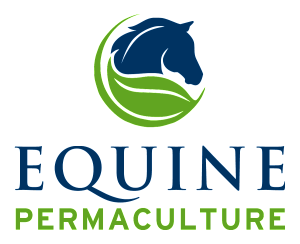 The idea to launch an online Equine Permaculture platform (www.equinepermaculture.com) has been in the pipeline for a while, but it was just a matter of timing to get a better idea of what purpose it could have for the equine community. Even though I have been practising and integrating Permaculture principles in my pasture management and property design consulting and education for the last 5 years, its only been recently (2014) that I visited the Permaculture Research Institute at the The Channon in NSW to complete my Permaculture Design Certificate (PDC) course. This has given me more insight into how I could further promote permaculture in my education and designing of horse properties. In addition, I felt that all horse and land owners could contribute to the movement so that we can all learn from our experiments and results!
The idea to launch an online Equine Permaculture platform (www.equinepermaculture.com) has been in the pipeline for a while, but it was just a matter of timing to get a better idea of what purpose it could have for the equine community. Even though I have been practising and integrating Permaculture principles in my pasture management and property design consulting and education for the last 5 years, its only been recently (2014) that I visited the Permaculture Research Institute at the The Channon in NSW to complete my Permaculture Design Certificate (PDC) course. This has given me more insight into how I could further promote permaculture in my education and designing of horse properties. In addition, I felt that all horse and land owners could contribute to the movement so that we can all learn from our experiments and results!
This blog website with educational articles, research reviews and personal stories and the book shop is just the start, in the near future we hope to extend this with certified (Equine) Permaculture courses and we also hope we can promote/support research projects that focus on equine and pasture health. So follow our blog!
About the website/ movement:
Equine Permaculture unites like minded horse people that want to learn about the principles and implementation of permaculture (design) and other sustainable farming strategies on their own properties. Our new website is an international platform for all horse and land owners that want to share principles, experiences and education. Anyone can contribute to the website!!
This platform works in a similar way as the Permaculture Research Institute Newsfeed were you can find all the latest posts listed below. With time we hope to build a database for different categories/ topics, which will serve as an open library. But what makes Equine Permaculture different? On this blog site we aim to collect those articles and information that is of particular interest to horse owners. However, we will also touch on livestock, small farm animals, kitchen gardens, house designs, earth works! Anything that is of interest to improving human settlements and responsible integration of horses on properties.
Why join and share your experiences and views?
To build a sustainable future we need to implement new ways of farming and managing pastures. But more than ever we need a paradigm shift, we need creativity. “Creativity involves breaking out of established patterns in order to look at things in a different way.” Although science can guide is in the right direction, there is still a lot to be discovered about how complex adaptive systems function such as soil, plant behaviour, plant-animal interactions, animal behaviour etc. Sustainability or balance in complex systems can not be found without trial and (mostly) error! On the large scale of time, we are only for a short time custodians of the land, why not share your trial and errors and change the way people manage their land and horses!
Join the movement towards responsible horse keeping and sustainable living using permaculture!
Do you want to tell your story (can be as small or as large as you want)- just contact the team and email us your story with some pictures or videos and we will post them on this website. For more information see our “become an author/contributor“ page.
Equine Permaculture – courses: “Introduction to Permaculture”
Equine Permaculture will hopefully in the near future be involved with full PDC courses. At this stage we provide introduction to Permaculture (with an equine focus) workshops and seminars (1 or 2 day events).
The seminars integrate a number of principles such as Permaculture, Keyline Design, Holistic Management® (HM) and Behavioural Education for Human, Animal, Vegetation and Ecosystem Management (BEHAVE). Our Regenerative Horse Property Design and Pasture Management workshops and seminars are for all horse and land owners, small and large acreage, that want to learn more about how to restore their land, improve soil carbon, regenerate pastures, drought proof their farm and close the input cycle of chemical based fertilisers by developing their own compost (tea) alternative and reduce supplementary feed cost.
Please event page for more information about workshop locations and dates.
powered by
Equine Podiotherapy Conference/ Bowker Lectures 2015
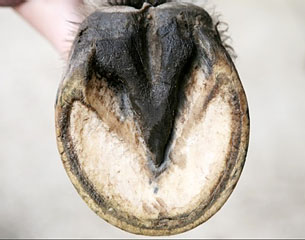 The Australian College of Equine Podiotherapy conducts a biennial conference that aims to present current, progressive, objective and scientifically justified information to equine industry professionals (vets, vet chiros, body therapists, equine podiatrists as well as ‘progressive’ horse owners). Our aim is to disseminate information covering all aspects of horse management that is slanted towards keeping horses sound and in optimum health for the long term, not just next weekend’s blue ribbon.
The Australian College of Equine Podiotherapy conducts a biennial conference that aims to present current, progressive, objective and scientifically justified information to equine industry professionals (vets, vet chiros, body therapists, equine podiatrists as well as ‘progressive’ horse owners). Our aim is to disseminate information covering all aspects of horse management that is slanted towards keeping horses sound and in optimum health for the long term, not just next weekend’s blue ribbon.
The conference is named in honour of our long term mentor Professor Robert Bowker from Michigan State University whose research has fostered a generational change in equine hoof management.
Our next conference is scheduled for 21-23 February 2015 in North East Victoria (at Pinnacle Valley Resort near Mansfield).
In addition to Prof. Bowker who will be presenting his latest research findings relevant to equine hoof function, we have secured Dr Kerry Ridgeway to present his latest thoughts relative to equine body therapy, Dr Ann Nyland to speak on equine intestinal health, Dr Penelope Thomson to speak about the current pain relief options for lame horses, Sharon May Davis to present a couple of new peer reviewed research papers relevant to functional anatomy, Mariette van den Berg (MB Equine Services) to speak about integrated pasture management and equine foraging behaviour and a half dozen hoof specialists who will discuss current ‘in the field’ research they are conducting.
Something new for us at this conference (with the three days allowing us to have an official dinner) will be an after dinner speaker. We are excited to announce that Dr Andrew McLean from the Australian Equine Behaviour Centre, will be our guest speaker. He will talk bout “Ethology and Learning Theory in Horse Training”.
It doesn’t matter what corner of the equine therapy world we work in, be it hooves or body or even veterinary medicine, the more we look at the whole horse, the better are the long term results.
The best trimmers are those who learn about bodies. The best body therapists are those who learn about the hooves.
There are also the amazing networking opportunities generated by such a gathering of like minds. You never know just who you may meet at a conference like this.
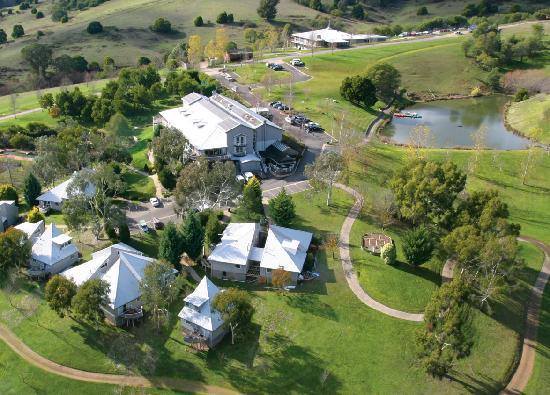 The venue at Pinnacle Valley is simply breathtaking. Right at the very foot of the iconic Victorian High Country. If you are from interstate you may wish to include a high country horse ride in your itinerary. February is the best time to experience the high country.
The venue at Pinnacle Valley is simply breathtaking. Right at the very foot of the iconic Victorian High Country. If you are from interstate you may wish to include a high country horse ride in your itinerary. February is the best time to experience the high country.
If you are intending to participate, don’t leave it to the last minute, numbers are limited. Please call or email in for your name to be put on the list. As soon as registration documents are completed they will be emailed out to you.
The cost for the three days is a very affordable $475. This includes morning tea afternoon tea and lunch. The dinner will be extra. As further details are cemented, we will update you on the Barefootblacksmith Facebook site and our web site http://www.barehoofcare.com/index.html
Info:
Date : Saturday 21st, Sunday 22nd and Monday 23rd February 2015
Venue : Pinnacle Valley Resort, Merrijig, Victoria
www.pvr.com.au
Time : Saturday – Registrations – 8.30 am
Lectures – 9.00 am – 6.00 pm Saturday and Sunday
Dinner & Guest Speaker – 6.00 pm Sunday
Lectures – 9.00 am – 3.00 pm Monday
Cost : $475 – Conference proceedings book, morning
tea, afternoon tea and lunch included.
Dinner$45. Total inc. Dinner $520
Registrations open 2 1 s t October 2014. Positions filled in order of payments received.
Complete attached registration form or download at www.barehoofcare.com and fax to 03 5773 4307.
You can also register in person at Equitana 2014
Download here:
Permaculture Design Certificate – MB Equine Services
Permaculture Design Course @ The Permaculture Research Institute, Zaytuna Farm (The Channon, NSW, Australia)
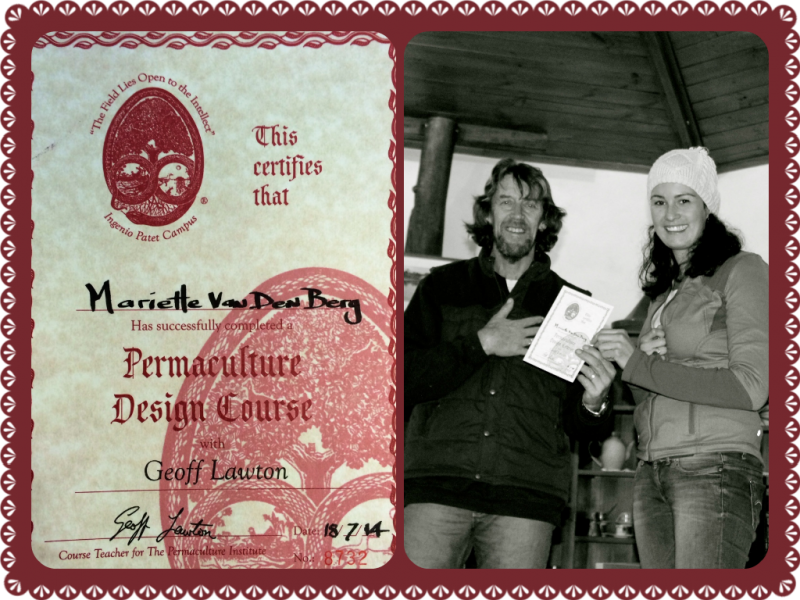
In July I visited the Permaculture Research Institute at the The Channon in NSW for the Permaculture
Design Certificate (PDC) course. I have been practising and integrating Permaculture principles in my pasture management and pro
perty design consulting and education for the last 4 years. But now I am proud to announce that I finally graduated as a Permaculture Designer!
In this post I want to tell a bit more about permaculture, the PDC course and the start of providing intro & PDC courses specifically integrating equine subjects for horse owners.
What is Permaculture?
The term ‘Permaculture’ is a portmanteau word for ‘permanent agriculture’ and ‘permanent culture’. Permaculture is basically an agricultural system which focuses on the natural way of practicing agriculture, maintaining the ecological system and not strictly adhering to the systems followed in modern agriculture. This system was designed and developed by two Australians named Bill Mollison and David Holmgren. Permaculture has been defined by Millison as, “A philosophy of working with, rather than against nature; of protracted and thoughtful observation rather than protracted and thoughtless labor; and of looking at plants and animals in all their functions, rather than treating any area as a single project system.”
The ethics and values on which this system of Permaculture is based are:
1. Earth Care
Earth care, means that we humans should try not to increase situations in which we destroy or perish the natural functioning of our planet earth. As this in turn will lead to consequences which will compel the extinction of human beings. We need to understand that we are merely a part of the earth and not its conquerors. If other animals and creatures will not exist, we will not exist too. There can be no better example than global warming to explain this.
2. People Care
The principle of people care can also be termed as the principle of cooperation. The principle of people care in Permaculture means that we all should work together and help each other instead of competing. One cannot develop a community by only helping oneself and staying alone. To live in a better culture and community, we have to work together and stay together.
3. Fair Share/ Setting Limits to Population and Consumption
Fair share indicates the equal right of using natural resources by all individuals. Natural resources are scarce and moreover, no one really owns it. Therefore, each one should get the share of what they deserve. These resources should not be concentrated in just a few hands, but optimally allocated.
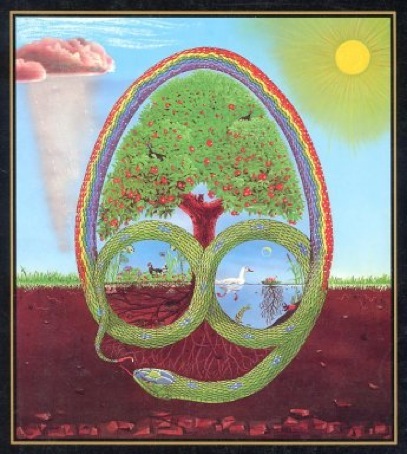 Benefits of Permaculture
Benefits of Permaculture
After looking at what permaculture is, let us now look at its benefits.
Reduced Cost
Using all the natural components of the ecosystem like composting the waste into useful organic matter and manure, you save up a lot of money which you would otherwise be spending on conventional farming.
Less Waste
In Permaculture, the waste products are recycled and manured back to the earth in the form of compost. Once you start following this practice, the waste material is later used as a natural fertilizer. There is less waste because all the present resources are optimally utilized.
Chemical Resistance
In permaculture, one uses natural fertilizers and mulch for farming and gardening. This helps you in resisting your produce from being exposed to the harmful chemicals that are used in pesticides. The agricultural system followed in Permaculture, will let the natural ecosystem predators perform the functions of the pesticides for you.
Less Pollution
If you are using the most natural way of agricultural cultivation, then there is no way you can increase the pollution. In fact, the zone in which Permaculture is practiced will be pollution free.
Develops Community Values
When you apply the Permaculture system you automatically develop values like creating pollution, helping your fellow beings, and using only how much you need.
Zoning
An important part of Permaculture is zoning. Zoning means arranging the produce depending on what ripens first and what needs more attention. Following this way, the ripe fruits and vegetables are plucked first and the latter ones, as and when they ripen.
Self Reliance and Diversity
One can produce a diverse range of produce in his/her land. Permaculture brings about the sense of self-reliance, as one can grow whatever he needs and consume it. Also, if there is some surplus, then, there are ways of preserving them and using them later.
Promotes Green Living
In Permaculture, one uses natural fertilizers, natural pesticides, and freshwater reserves. It undoubtedly promotes green living of the backyard style.
Helpful in Improving Environmental Conditions
Permaculture teaches us different ways of attaining sufficient and sustainable agriculture in a way beneficial for the environment. Those who follow this culture, produce agricultural goods using a harmonious integration of human dwellings, micro-climate, plants, animals, soil, and water in a productive and stable way.
Can be Applied in Already Functioning Systems
Permaculture can be applied in different agricultural systems that are already functioning. Though, it is necessary that the land is suitable for it. Permaculture can be practiced in areas where agriculture is traditionally practiced and is not located in a commercially developed area, where most of the constituents of our ecological systems have perished.
The system and the concept followed in permaculture sounds very promising in maintaining the ecological system well and also in bringing self-reliance to the farmers or those with forest-gardens, by the means of implementing sustainable and productive farms and gardens. It is basically about going back to the traditional method of farming, incorporating the features of organic farming, agro-forestry, sustainable development, and applied ecology. And, there really seems no other way of saving the earth from the calamities created by us.
Permaculture for equine systems is based on conscious design that focuses on the sustainability of horse keeping, land regeneration, and the well-being of horses. Permaculture as a design system is a call to action: it aims to work towards sustainable solutions. The objective is to produce systems that are ecologically sound and economically viable, which provide for their own needs, do not exploit or pollute, and are there for sustainability in the long term.
Using these principles, we can develop sites in such a way that we can also provide niches for a variety of other animals, including livestock such as cattle, goats, and chickens. In the design of horse properties, we can include the following systems: dams and swales; contour fencing; mobile electric fencing for cell grazing (to minimise damage to pastures); lane-way and central point systems; water points; various forage tree and shrub species along field boundaries and divisions for cut-and-carry fodder; early- and late-season green crops; composting systems that make full use of animal manures; and the production of compost tea and bio-fertiliser.
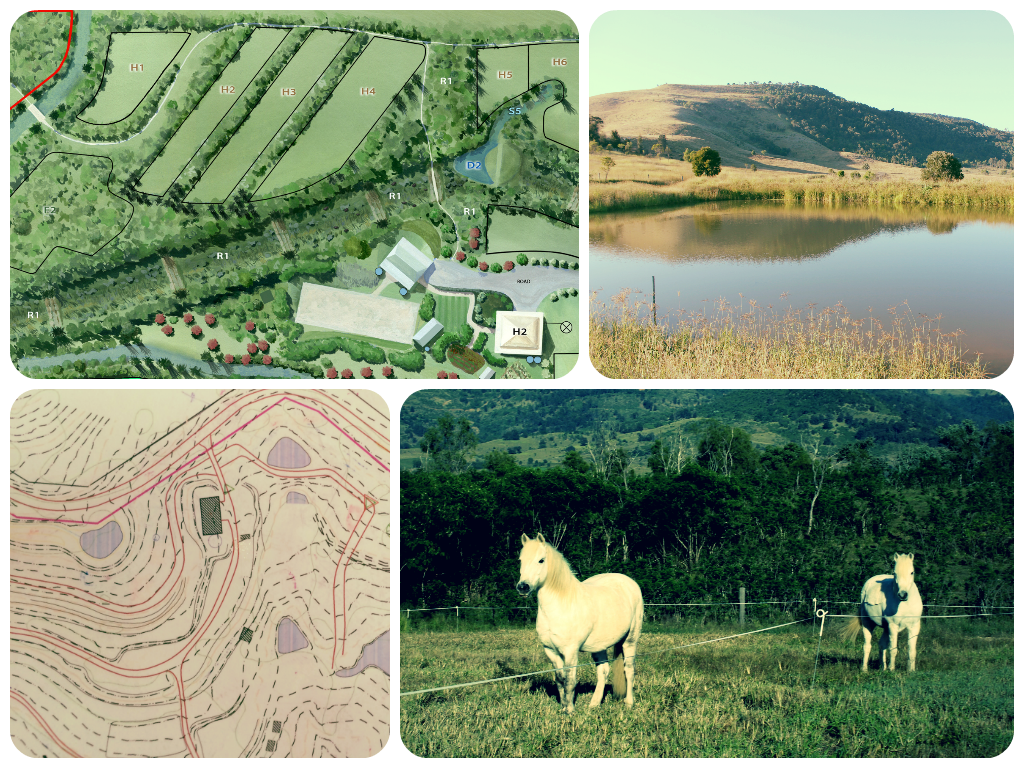
Equine Permaculture
To create a healthy environment for horses, we should have an integrative approach that looks at various aspects, including the environment and behaviour of wild and free-roaming horses in comparison to those of domestic horses, property design strategies, pasture management for diversity, general horse nutrition, shelter, drought-proofing, and integrating horses in ecological terms as soundly as possible.
The PDC course
The Permaculture Design Certificate course is an internationally-recognized, seventy-two hour course resulting in a Permaculture Design Certificate. It provides an introduction to permaculture design as set forth by movement founder Bill Mollison. The course is taught by Geoff and Nadia Lawton, and other permaculture educators.
The PDC serves as foundation for further permaculture work and study and is a prerequisite for the Diploma in Permaculture Design, offered through The Permaculture Institute. Credit for this course is now accepted by a growing number of universities around the world.
To date, thousands of permaculture designers worldwide have been certified through this course, and now comprise a global network of educators, ecological activists who influence major corporations, individuals creating new business alternatives and groups of committed people working together to change the way we view and design into our landscapes.
The course covers sustainable living systems for a wide variety of landscapes and climates. It includes the application of permaculture principles to food production, home design, construction, energy conservation and generation, and explores alternative economic structures and legal strategies supporting permaculture solutions.
Specific topics include:
* Theory and principles of permaculture
* Eco-friendly house placement and design
* Energy conservation techniques for cold climates
* Recycling and waste management
* Organic food production
* Water harvesting and management
* Ecological pest control
* Drought-proofing
* Soil rehabilitation and erosion control
* Livestock
* Aquaculture
* Catastrophe preparedness and prevention
* Windbreaks and fire control
The foundation for this course is A Permaculture Designers’ Manual by Bill Mollison and is distributed to students on the first day. The Manual is included in the cost of the course
Equine Permaculture – courses: “Introduction to Permaculture”
MB Equine Services will hopefully in the near future be involved with full PDC courses. At this stage we provide introduction to Permaculture (with an equine focus) workshops and seminars (1 or 2 day events).
The seminars integrate a number of principles such as Permaculture, Keyline Design, Holistic Management® (HM) and Behavioural Education for Human, Animal, Vegetation and Ecosystem Management (BEHAVE). Our Regenerative Horse Property Design and Pasture Management workshops and seminars are for all horse and land owners, small and large acreage, that want to learn more about how to restore their land, improve soil carbon, regenerate pastures, drought proof their farm and close the input cycle of chemical based fertilisers by developing their own compost (tea) alternative and reduce supplementary feed cost.
Please visit our home page for more information about workshop locations and dates.
Equine Health Workshop: South East QLD (Canungra) – 1st of June 2014
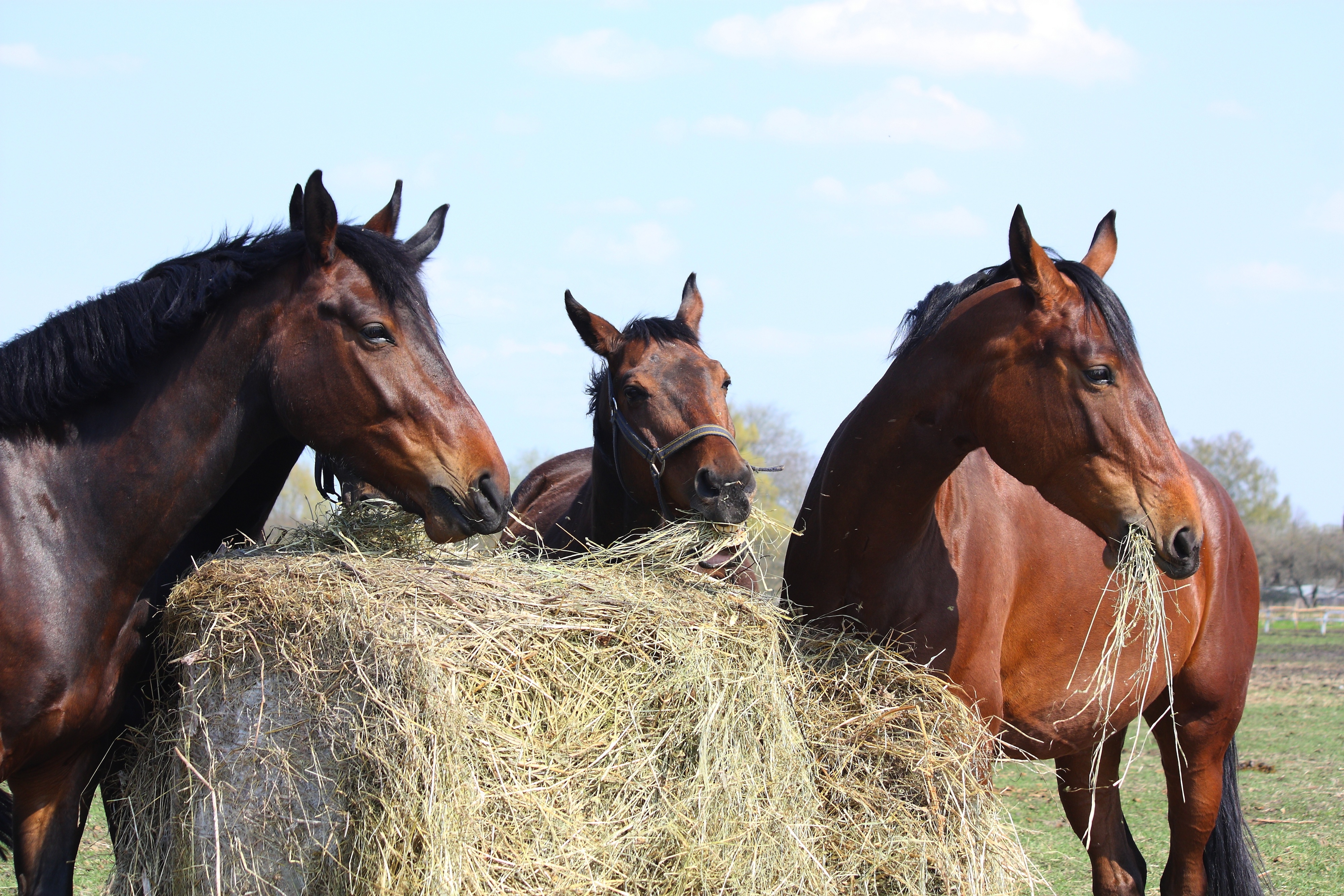 Equine Health Workshop: South East QLD
Equine Health Workshop: South East QLD
When: 1st June 2014
Where: Canungra – School of Arts Hall
Time: 8:30-12:00
Cost: FREE
Topics:
– Equine Nutrition
– Gastrointestinal Tract
– Digestive & Metabolic Disorders
– Nutrient Resources & Nutrient Requirements
– Dietary Management
– Parasite Control
– Biosecurity QLD – Hendra Update
Booking and more information: http://www.seqcatchments.com.au/announcements/horse-nutrition-canungra
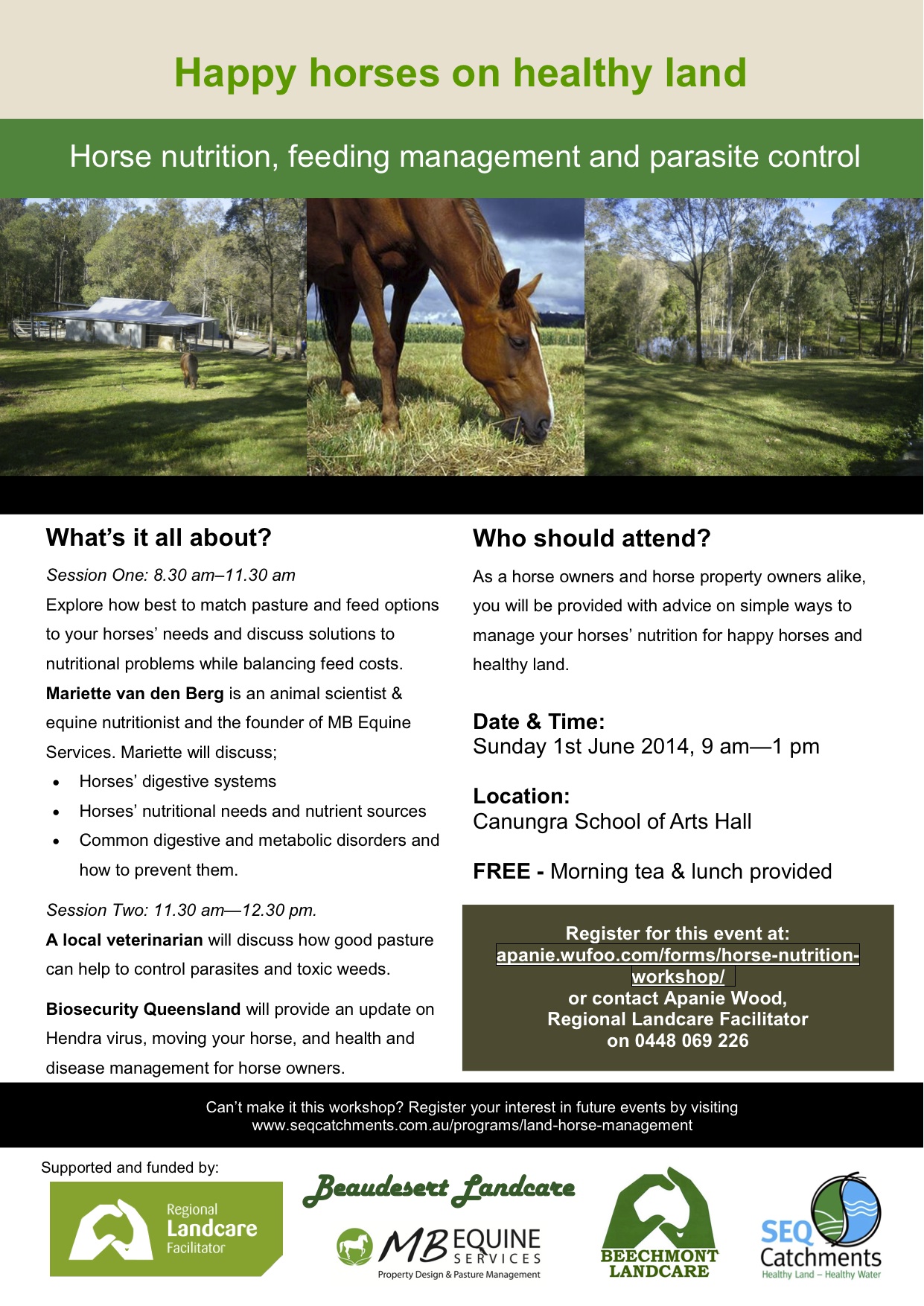
Equine Nutrition & Property Planning: South East QLD @ Hays Inlet Festival May/June2014
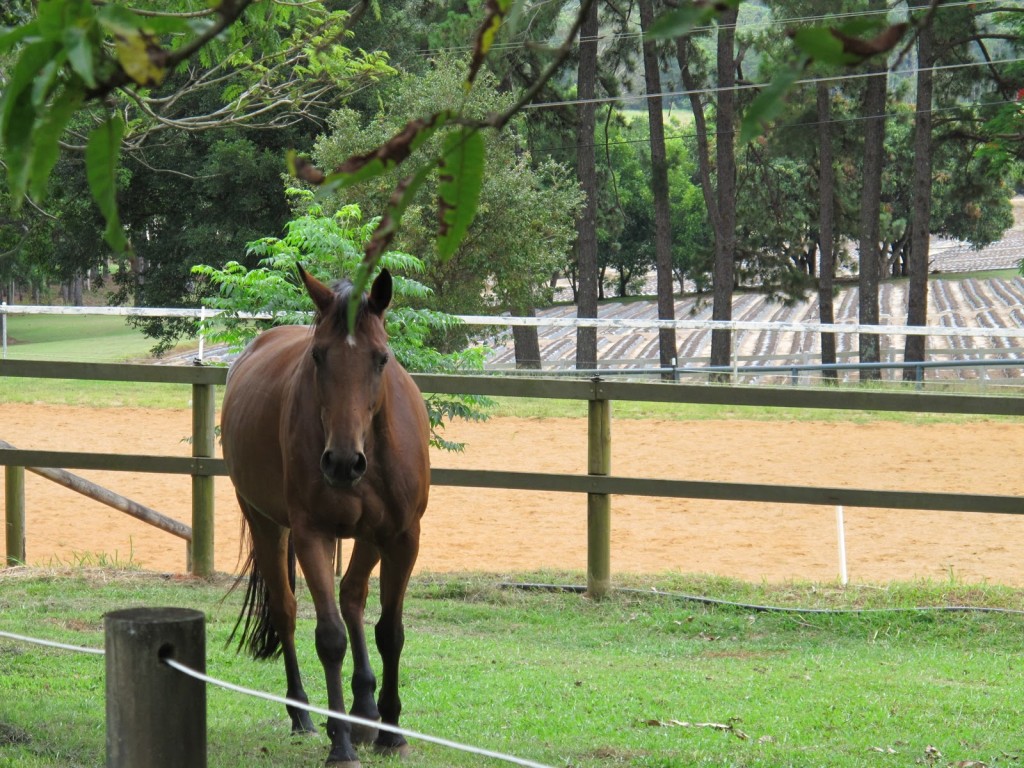 WORKSHOP 1: HORSE NUTRITION & FEEDING MANAGEMENT
WORKSHOP 1: HORSE NUTRITION & FEEDING MANAGEMENT
WHEN: Saturday May 31st 2014, 8.30am – 12.30pm
WHERE: Both workshops at 268 Mount Samson Road, Armstrong Creek (Dayboro)
Explore how best to match pasture and feed options to your horses’ needs and discuss solutions to nutritional problems while balancing feed costs. You will hear about horses’ digestive systems, nutritional needs and nutrient sources, common digestive and metabolic disorders and how to prevent them.
Presenter: Mariette van den Berg is an animal scientist & nutritionist with over 6 years research experience in equine nutrition and the founder of MB Equine Services.
WORKSHOP 2: DESIGN A MANAGEMENT PLAN FOR YOUR PROPERTY
WHEN: Saturday May 31st 2014, 1.30pm – 4.30pm
Developing a plan for a property is an important tool to help you understand what assets your land holds and the best way to manage them. This course will assist you to develop your own management plan for your horse property, in line with your set of goals for happy and healthy horses. A map of your property will be provided.
Presenters: Greg Leach (SEQ Catchments) & Greg Curry
Greg Leach has over 20 years experience in whole-property planning services for balancing
environmental, production, financial and social outcomes.
Greg Curry is a horse trainer and specializes in horse behaviour. Come and see how Greg is designing his property for sustainable horse keeping
http://www.seqcatchments.com.au/announcements/horse-nutrition-and-property-management-workshops
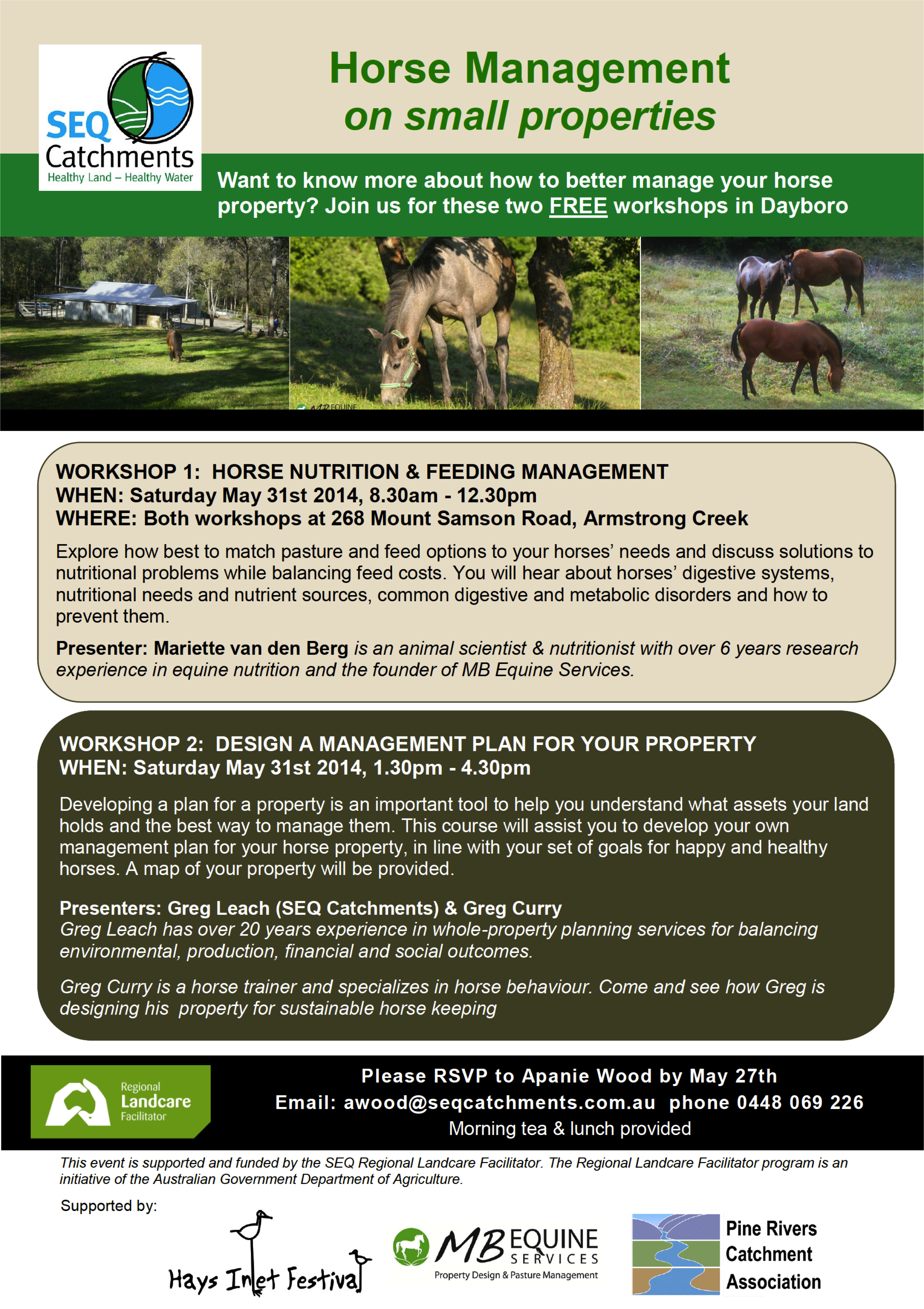



Follow Us!